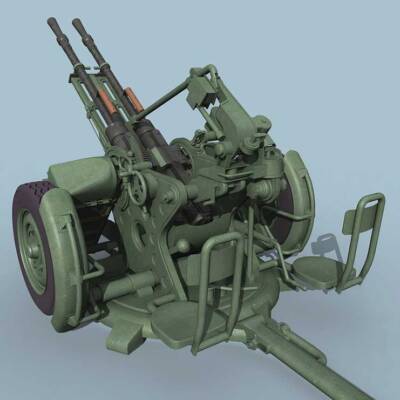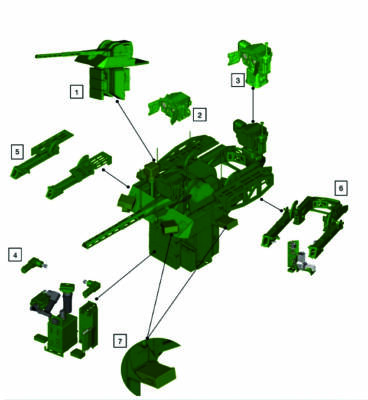 New Delhi. Startups along with Micro, Small and Medium Enterprises (MSMEs) are going to play a pivotal role in building a robust Indian Defence Ecosystem, said Managing Director (MD) of a Tamil Nadu-based Indian startup in defence. “We are happy that the Government of India recently has allowed startups to be part of building Indian defence ecosystem. We have an emotional and passionate connect towards this journey,” R Jayaraghavendhar, MD, Mwiven Infra Tech Pvt Ltd told in an exclusive interview to Raksha Anirveda.
New Delhi. Startups along with Micro, Small and Medium Enterprises (MSMEs) are going to play a pivotal role in building a robust Indian Defence Ecosystem, said Managing Director (MD) of a Tamil Nadu-based Indian startup in defence. “We are happy that the Government of India recently has allowed startups to be part of building Indian defence ecosystem. We have an emotional and passionate connect towards this journey,” R Jayaraghavendhar, MD, Mwiven Infra Tech Pvt Ltd told in an exclusive interview to Raksha Anirveda.
As far as self-reliance is concerned, Indian startups contribute around 30 per cent of the Indian ecosystem, and the recent policy initiatives of the government allow more startups to come.
“Startups in general and Mwiven being a startup in particular have no choice but to be design specific. Being design specific is the only thing for us,” observes Jayaraghavendhar.
“We have our own internal creation, with our own tools and designs. We are protecting our country. We have different approach working with local vendors. This way we are trying to design for Indian theatre,” the Mwiven MD said.
Mwiven is a technology-driven startup, and plans to create a lot of products. With the easing of policy initiatives, startups are adopting Indian defence market which is very significant.
Earlier, there was a mindset that the defence is an area of ‘No Go Place.’ There are bureaucratic and procedural delays. But, if we see the other side of the coin, it is actually not, said Jayaraghavendhar.
It is startups which are aligning and collaborating with MSMEs for self reliance in defence. Startups work out of passion. Product offering cost for a startup is very low as labourers, vendors and even other resources are found locally.
He said the mantra for the startups is patience and perseverance, and there will be a time when startups will be the starting point and others will follow in the run up to build a robust Indian defence ecosystem.
Today’s battlefield scenario has altogether changed. It’s not the time of conventional warfare. Urban areas are coming up, and therefore there is a need of urban platforms.
Now the war scenario is being changed from conventional to unconventional. There is a need of smaller, lighter platforms which are quick and intelligence loaded. It is more on defence rather on deterrence. “Therefore our objective is to develop and design platforms which are smaller in size. We are all set to support in building strategic defence force,” Jayaraghavendhar commented.
Now is the time of ultra-light platform, and our ‘COBOTIC’ is developed with the philosophy of ‘Intelligence driven by human, that means having intelligence but is human controlled. COBOTIC is nothing but collaborative robotic network.

“This is the time of collaborative environment, where progressive information sharing happens. So we are looking for the platform that is C4ISR based, which is an intelligence-driven mechanism. We are switching from bigger to smarter, and there comes the utility of COBOTIC,” noted Jayaraghavendhar.
Earlier there was no access of area, and wars were fought in a conventional way resulting in heavy loss and collateral damages. Today’s defence mechanism is of reconnaissance, surveillance with access of area. Keeping in view of that Mwiven’s USP is to make small and smarter Indian terrain platform.
“We have 10 year agreement with SRPC Joint-stock Company (JSC). We have collaboration and are working on second generation anti-tank missile, and with value addition our company is upgrading the existing systems. Mwiven is working towards adding Optics and making these second generation anti-tank missile accessible and friendly.”
“As far as orders are concerned, yes we are working with Indian Army and the Ministry of Defence.” For Make 1 or say Make 2, we manufacture locally and supply Made in India platforms,” Jayaraghavendhar said.
“The reason for signing up with SRPC JSC is that being a startup company we need to collaborate. We have a licensing agreement, and we can deliver a better product at competitive cost.”
Startups are scalable companies. They need Small and Medium Enterprises (SMEs) to deliver a strategically strong product. Startups out of necessity need to tie-up with SMEs, auxiliary units, and the best part is that allowing the startups to make cluster, which is an absolutely organic process. On the other end, SMEs also look at the same way and co-existence happens.
Defence ecosystem invariably builds economy and other resources, and startups have very active role to play in creating the ecosystem for the same.
“We have just been sanctioned as a design and development agency for defence platforms by the Ministry of Defence (MoD), Government of India. We are an agency for modern warfare development which is future combat ready,” Jayaraghavendhar quipped.
“Our design philosophy is to design a product or service which has a shelf-life of at least 15 years, which can show its prowess after 15 years of manufacturing. Every shot counts and it should count after 15 years. Our process is small but a robust one,” he said.
Appreciating Government’s conscious decision, he said it is good that the Government understood the need of the hour and allowed the private companies to enter into defence sector, and therefore the design and development process has become robust.
“For us, two common things are there-first, ‘design for future’ keeping in mind the urban combat process, and second is ‘safety’ i.e. why have we designed the product.”
In next 5-10-15-20 years, there will be low tempo warfare, where small-passive attacks exist. Thus, the war scenario now is more unconventional in nature. It is combinational and collaborative where our product performs and delivers.
“If we don’t sweat, he will bleed. Mwiven’s fundamental philosophy is to understand that your mistake will kill someone. Therefore we work to protect the guy who is protecting us. This way we develop a culture of responsibility in our organisation.”
“Mwiven is a startup of accountability. We inculcate seriousness in our work. We are more specific to our credo. We develop a culture to be accountable to people’s life. Although it is a difficult job, but we at Mwiven inculcating a culture of responsibility and accountability.”
There is no Indian expertise for Indian startups in comparison to the developed countries like US, UK. No defence ecosystem is here. Mwiven has a policy to keep 20:80 ratio between experts and freshers. “We induct freshers, we train them. We get them understand the meaning of joining a company. So there are definite protocol, process and discipline,” said Mwiven Infrastructure MD.
“Defence needs lot of innovation. There is a need of design thinking. Future combat has to be future driven. Our company wants to be that change where we at least can create an ecosystem,” Jayaraghavendhar added.

He said DPP-2020 which has now become DAP 2020 is one of the best policy of the Government. This policy basically insulates startups from bigger players. With this, startups are legally permitted to participate in Make in India policy.
“Earlier there was problem, now EODB has been regularised and this is a sea change which is allowing startups to be partner in the process. Now I can proudly say I am a startup and I am in defence. It is actually surprising to see that the Government taking younger generation in problem solving.”
It is indeed a big thing that such a big democratic country with 50 lakh army allowing startups to be part of a robust Indian defence ecosystem. It is just a tip of the iceberg; more startups will join in next 10 years, and will deliver state-of-the-art defence platforms. Stigma of Indian projects/ products in defence will change.
DAP 2020 and all other policies are relevant, which is significant in this crusade. Yes, Covid certainly has impact on industry but with ease we are progressing. “Acceptance is going to take time, the exploration has started,” Jayaraghavendhar concluded.








